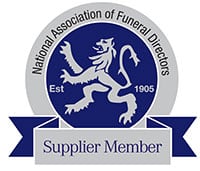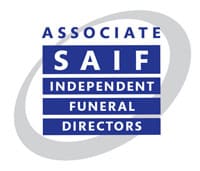This Code of Practice is adhered to by all members.
- Civil funerals will always be conducted to the highest possible standards of delivery and appropriateness and will attempt in every way to reflect the needs and wishes of the client.
- A civil funeral will be based, wherever possible, on a face-to-face meeting with the client, which will normally be held at the client’s home. Members should leave details of intended home visits with a relative or colleague in advance, for security purposes.
- The member will base the tribute on factually correct information and will, therefore, normally draw on more than one source of information. Members will regard the seeking of information from friends, colleagues etc as normal.
- Members of the family or personal circle of the deceased will always be encouraged to participate.
- Members will use their interviewing skills and literary ability to win the trust of clients and set down, in appropriate and correctly composed English, a text which celebrates and/or reflects a life with integrity and accuracy.
- A civil funeral may include religious material if requested.
- Members will not conceal the number of funerals they have conducted but will refrain from telling clients’ details of other funerals they have conducted.
- Civil funerals will always be delivered from a full written text which will include any contributions from others. A copy of the full text should be shown to the client to check before the funeral. A commemorative copy will always be offered to the client after the funeral ceremony.
- At cremations, the member will provide the relevant chapel staff with a music cue sheet, enabling the prompt and correct use of music during the ceremony.
- Members will follow social custom in dress for formal occasions but dressing wholly in black is not required as a matter of course. Clients will have the option of requiring the celebrant to dress in black.
- Members can arrange with the funeral director the order in which the celebrant, funeral director, coffin, family group and guests enter the chapel or process to the graveside.
- Members will not use their access to clients to promote products or paid services in any other occupation or other interests, philosophies, religious or other beliefs or voluntary commitments they may have. Neither will members who also work in register offices, or have other similar roles, use their position to promote civil funerals.
- Members will seek to establish and maintain good working relationships with staff of their local crematoria, local cemeteries and local funeral directors.
- Members will be punctual when meeting with clients, funeral directors and crematorium and cemetery staff as well as when conducting funerals. If unforeseen or emergency events dictate the celebrant’s late or non-attendance every effort is made to provide emergency cover.
- Members will never cause, by their actions, the Institute to be brought into disrepute or in any way cause the reputation of the Institute to be damaged.
- Members will not express any criticism of any other member, client or any person working within the funeral industry.
-
- Members will respect the confidentiality of all information received in the course of their work and will treat clients and those working within the funeral industry with courtesy and respect.
Updated November 2020 - Version 01


